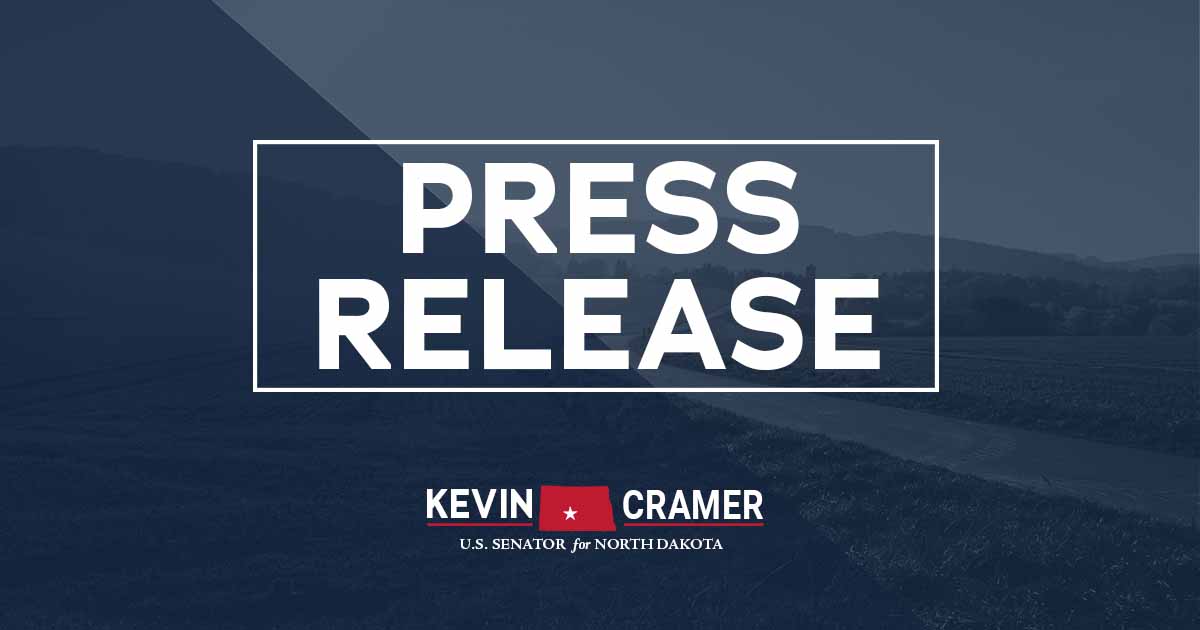Source: United States Senator Kevin Cramer (R-ND)
WASHINGTON – U.S. Senator Kevin Cramer (R-ND), a Senate Banking Committee member, joined Senator Mike Crapo (R-ID) in introducing the Tax Gap Reform and Internal Revenue Service (IRS) Enforcement Act, bicameral legislation to protect taxpayers against Democrats’ campaign to monitor Americans’ bank accounts, place taxpayer finances in a surveillance dragnet, and provide additional mandatory funding to increase the number of ISR agents.
“Democrats want to dramatically expand the IRS workforce and give it new powers which will infringe on American taxpayers’ privacy,” said Senator Cramer. “Our legislation implements important safeguards against potential targeting and abuse by the tax collecting agency.”
Specifically, the Tax Gap Reform and IRS Enforcement Act would:
- Require timely, annually-updated information on tax gap estimates in coordination with the Joint Committee on Taxation.
- Prevent the IRS from targeting Americans for their political and ideological beliefs.
- Codify President Biden’s pledge to not increase audits of taxpayers making less than $400,000 per year.
- Require the IRS to use existing data and tools to improve its corporate audit selection process and increase enforcement against high-income non-filers.
- Create an IRS enforcement fellowship pilot program to assist with the agency’s most complex audits and case selection decisions.
Senators Cramer and Crapo are joined on the bill by Senators John Barrasso (R-WY), Mike Braun (R-IN), John Boozman (R-AR), Bill Cassidy (R-LA), James Lankford (R-OK), Lisa Murkowski (R-AK), Mike Rounds (R-SD), Marco Rubio (R-FL), Thom Tillis (R-NC), and Todd Young (R-IN). Ways and Means Committee Republican Leader Kevin Brady (R-TX) introduced companion legislation in the U.S. House of Representatives.
The legislation is also supported by the National Taxpayers Union, Americans for Tax Reform, and the Center for a Free Economy.
“This legislation is a strong alternative to recent proposals that would write an $80 billion check to the IRS with too little forethought,” said Pete Sepp, President of the National Taxpayers Union. “If lawmakers move forward with an Internal Revenue Service (IRS) budget boost anyway, these reforms and more should be considered prerequisites for any major proposed increase in the IRS budget, and would both safeguard taxpayers’ rights and support taxpayers’ interest in an effective, modern, and agile IRS.”
“Democrats want to give the IRS $80 billion and hire 87,000 new agents so they can harass and audit taxpayers and create a new reporting regime that targets any bank account, Venmo account, or financial account exceeding $600 in gross inflows and outflows,” said Grover Norquist, President of Americans for Tax Reform. “This should be alarming given the IRS has a long history of failing to do its job and targeting taxpayers based on their political beliefs. The Tax Gap Reform and IRS Enforcement Act … takes steps towards protecting taxpayers by implementing important safeguards against potential new IRS targeting and abuse.”
“Congressional Democrats’ answer to Americans’ frustrations with the IRS is to hire more tax bureaucrats to audit them,” said Ryan Ellis, President of the Center for a Free Economy. “This bill provides a welcome reform-based alternative. People are fed up with being told they are tax cheats by academics and bureaucrats who have never signed the front of a paycheck, and that they must become the subject of fishing expedition audits in service to a fabricated ‘tax gap.’ Reining in the tax gap estimation and audit process gives taxpayers a fair shake if the tax man comes knocking. Congress should focus on getting the IRS to answer phone calls and correspondence in a timely manner, not on new audits.”
